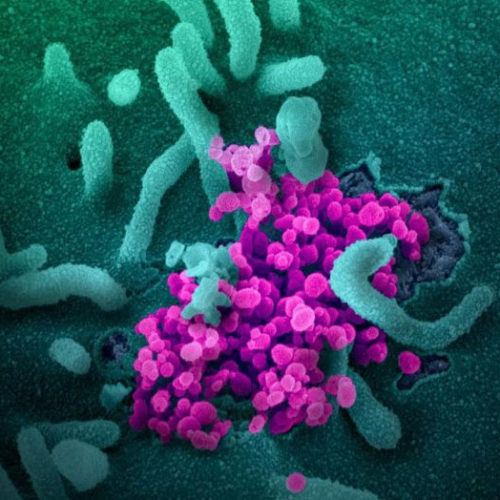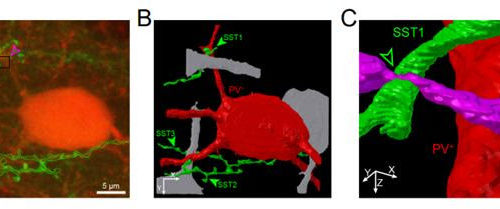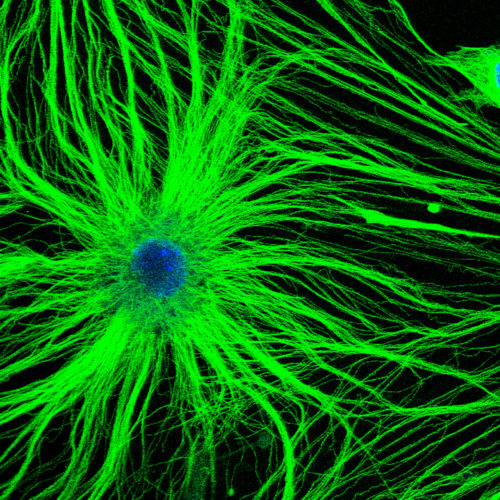In the brains of people that suffer from long-term multiple sclerosis (MS), inflammatory cells are not entering the brain via the bloodstream anymore. Instead, the cells arise from local memory cells in the brain. Nina Fransen and her colleagues of the Netherlands Institute for Neuroscience show this in a recently published article in the scientific...
Tag: <span>Neurological disorder</span>
Vitamin D could improve outcomes in COVID-19
By Dr. Liji Thomas, MD A new study published on the preprint server medRxiv* in May 2020 shows that vitamin D could have a beneficial effect on the course of illness for COVID-19 patients. What decides COVID-19 outcomes? Even as the COVID-19 outbreak continues to cost lives and cause tremendous sickness in almost every country...
Molecular basis of rare neurological disorder reveals potential treatment
Now, his team has figured out how mutations in this protein, called synaptotagmin-1 or syt1, can lead to a rare condition known as syt1-associated neurodevelopmental disorder. The scientists’ discovery led them to identify a possible treatment, Chapman and his colleagues report May 1, 2020, in the journal Neuron. An email prompted the team’s investigation. In...
Neurologic Symptoms and COVID-19: What’s Known, What Isn’t
By: Damian McNamara Editor’s note: Find the latest COVID-19 news and guidance in Medscape’s Coronavirus Resource Center. Since the Centers for Disease Control and Prevention (CDC) confirmed the first US case of novel coronavirus infection on January 20, much of the clinical focus has naturally centered on the virus’ prodromal symptoms and severe respiratory effects....
Neurologists watch for signs that COVID-19 can attack the brain
Neurologists at the University of Alberta are monitoring Edmonton patients diagnosed with COVID-19 for signs that the virus, which can cause deadly respiratory illness, may also attack the brain. “Several manuscripts have been published that suggest patients with severe COVID-19 symptoms also display neurological problems such as confusion, stroke-like attacks, even a hemorrhage in the...
A study finds neuropeptide somatostatin enhances visual processing?
By: PROFESSOR SEUNG-HEE LEE, KAIST Researchers have confirmed that neuropeptide somatostatin can improve cognitive function in the brain. A research group of Professor Seung-Hee Lee from the Department of Biological Sciences at KAIST found that the application of neuropeptide somatostatin improves visual processing and cognitive behaviors by reducing excitatory inputs to parvalbumin-positive interneurons in the...
Glial Brain Cells, Long in Neurons’ Shadow, Reveal Hidden Powers
The glial cells of the nervous system have been eclipsed in importance by neurons for decades. But glia are turning out to be central to many neurological functions, including pain perception. The sting of a paper cut or the throb of a dog bite is perceived through the skin, where cells react to mechanical forces and send...
Taste-related protein provides target for drugs to treat neurological disorders
VAN ANDEL RESEARCH INSTITUTE GRAND RAPIDS, Mich. (Dec. 2, 2019) — Understanding how the brain processes sweet, bitter and umami tastes may one day help researchers design more effective drugs for neurological disorders. Van Andel Institute scientists have for the first time revealed the near atomic-level structure of a calcium homeostasis modulator (CALHM), a type...
An oral splint that can reduce Tourette syndrome tics
Researchers at Osaka University develop an oral device that effectively reduces motor and vocal tics in patients with Tourette syndrome OSAKA UNIVERSITY Osaka, Japan – Tourette syndrome is a neurological disorder characterized by vocal and motor tics, which can contribute to anxiety, depression, and low self-esteem. Researchers in Japan have developed a removable dental appliance that can reduce these tics in...
More evidence that blood tests can detect the risk of Alzheimer’s
by Lund University A new study confirms that a simple blood test can reveal whether there is accelerating nerve cell damage in the brain. The researchers analysed neurofilament light protein (NFL) in blood samples from patients with Alzheimer’s disease. Recently published in JAMA Neurology, the study suggests that the NFL concentration in the blood could be able to indicate if a drug actually affects the loss of...



